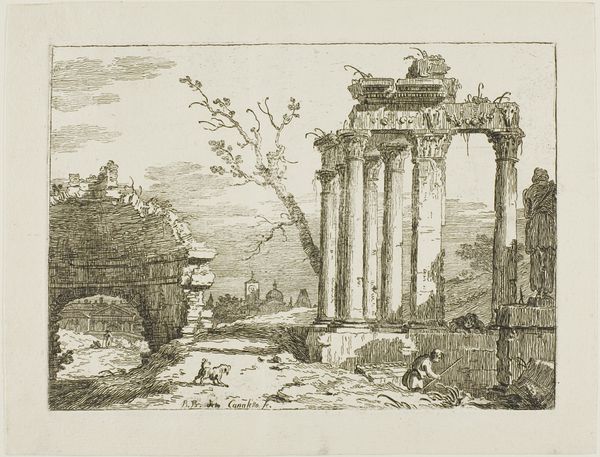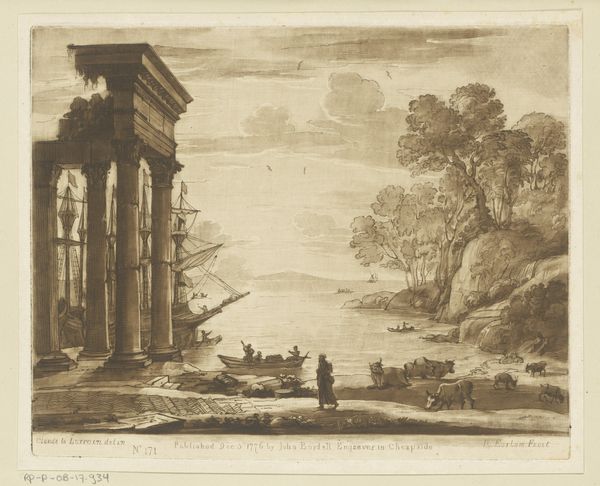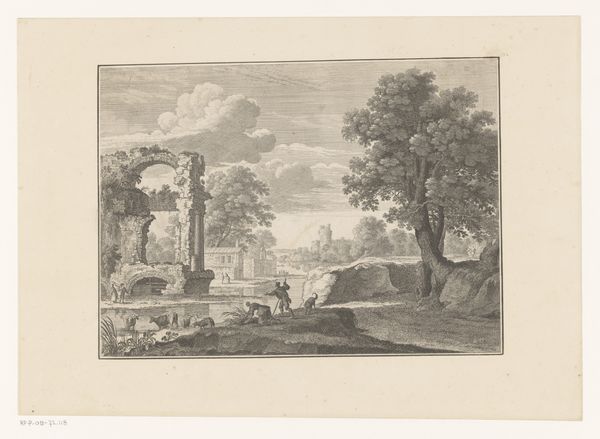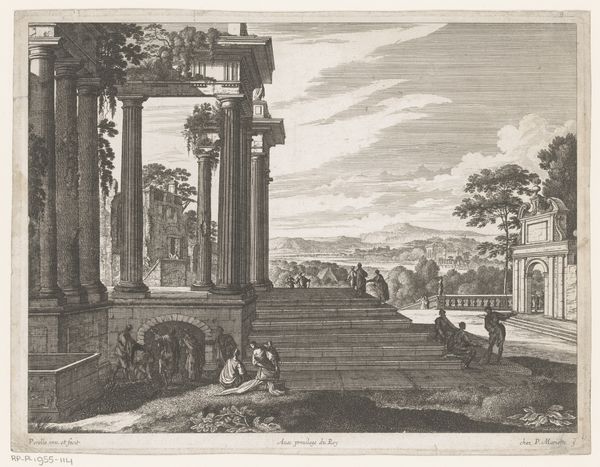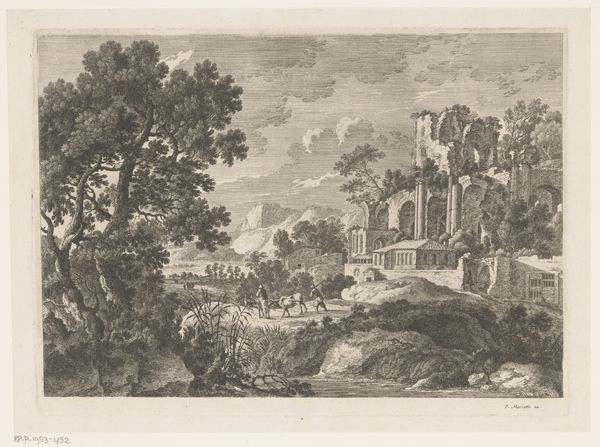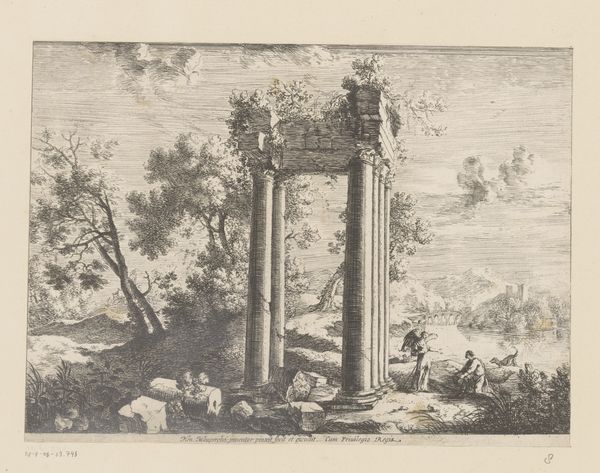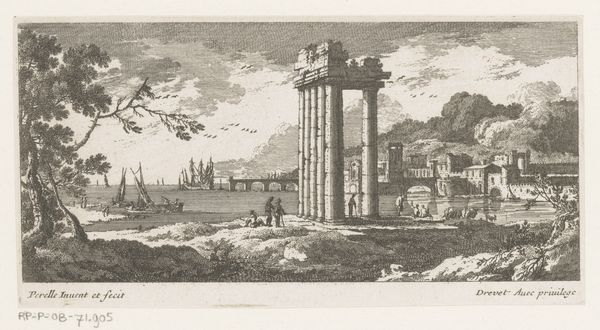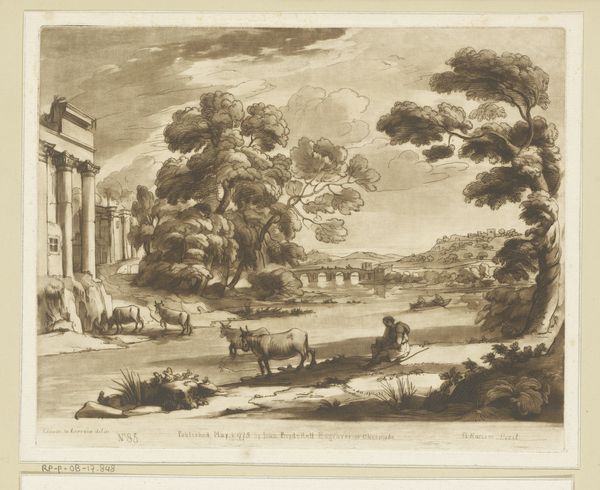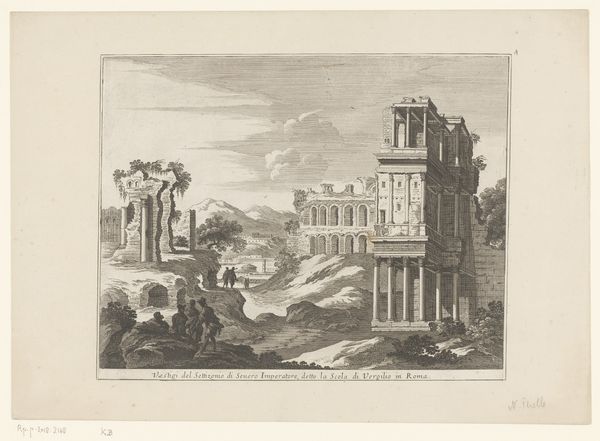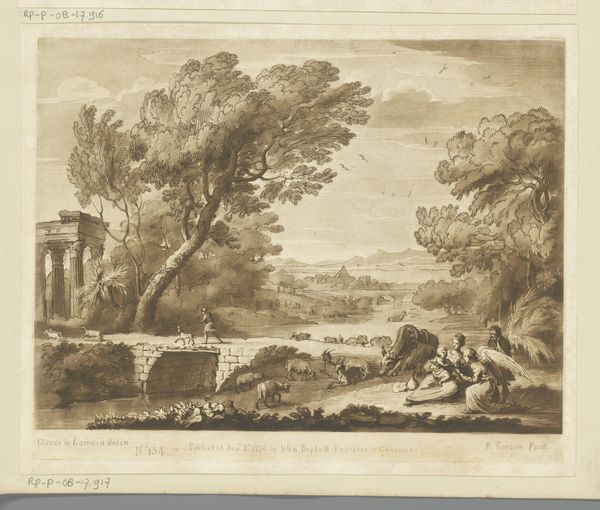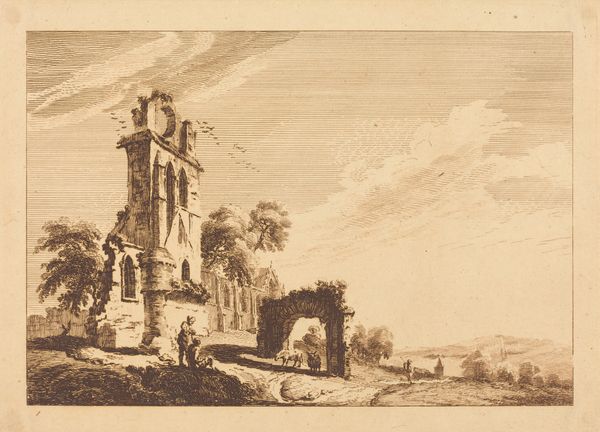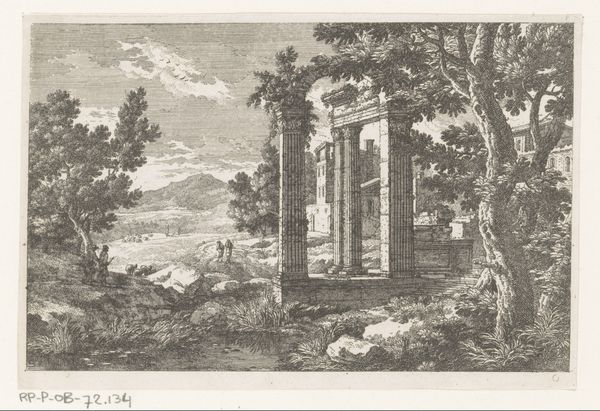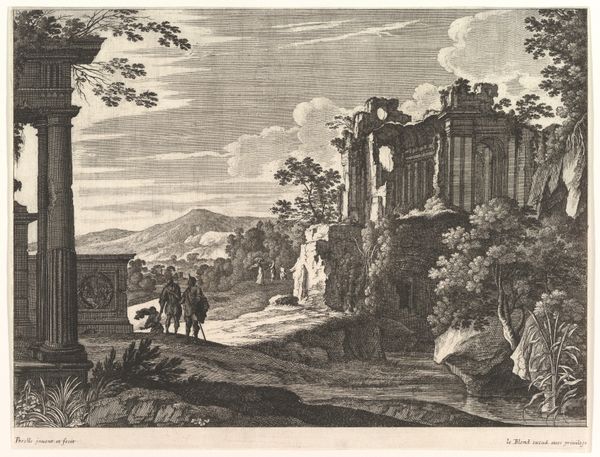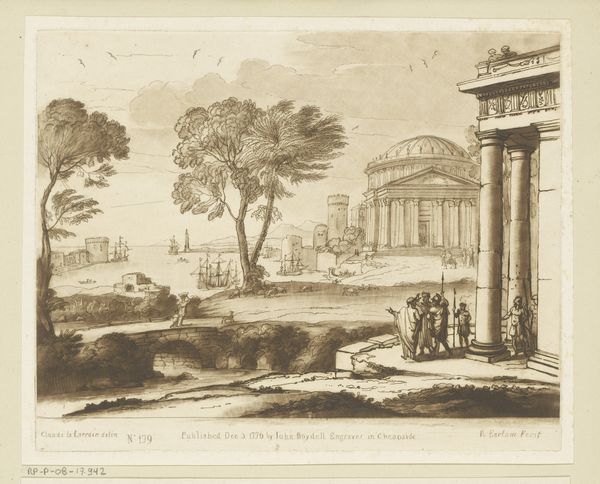
print, etching
#
baroque
# print
#
etching
#
landscape
#
classical-realism
#
cityscape
#
history-painting
Dimensions: height 200 mm, width 329 mm
Copyright: Rijks Museum: Open Domain
Editor: So, here we have Nicolas Perelle's "Landscape with Antique Ruins," an etching from the period 1613 to 1695. The scene has this striking sense of grandeur mixed with decay, and the precision of the etching is incredible. What's your interpretation of a piece like this? Curator: The depiction of ruins in Perelle’s work is inherently tied to the political climate of the 17th century, when artistic interest in antiquity intertwined with ideas about power and decline. These weren't simply aesthetic choices, they actively participated in the ongoing dialogue about political power in the world, often promoting the importance of stability in Europe. How do you see the relationship between the romantic depiction and social messages in the art piece? Editor: I think it's a fascinating contrast! You've got the idyllic landscape with tiny figures seemingly undisturbed by the monumental decay... it's almost picturesque, which undermines the concept of ruins as a sign of decay and loss. Curator: Precisely. And the 'picturesque' itself became a highly influential aesthetic category, shaping landscape design and visual culture. Etchings such as this offered access to the image of landscape to wider audiences, spreading cultural ideals of the period. It's vital to remember the prints existed as a crucial part of a visual economy. Editor: That is such a good point – its accessibility changes the perception. Curator: Absolutely. It highlights how art plays a vital role in distributing political and social values within its society. By understanding the social environment influencing Perelle, we grasp the nuanced meaning and implications of presenting the past to influence current events. Editor: This has been super helpful. Seeing this landscape as a product of its time makes the ruin feel so much more than just pretty. Curator: Indeed. I now realize that the past and present blend even in art seemingly focused on aesthetics and history. It showcases how political concerns are intertwined in artistic choices, and reveals its true significance.
Comments
No comments
Be the first to comment and join the conversation on the ultimate creative platform.
